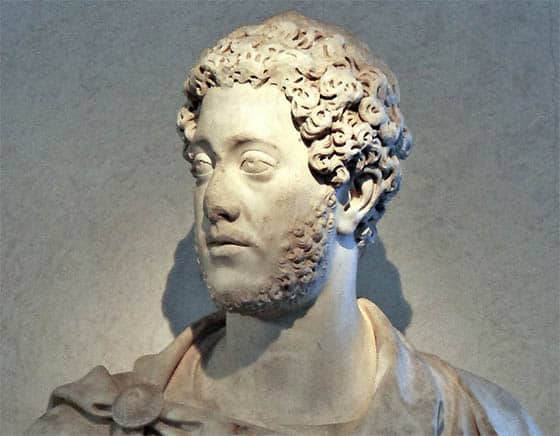
He was succeeded in 41AD by his uncle, Claudius, who invaded Britain in 43AD. Caligula was popular at first, but after an illness upset his mental stability, he embarked on a reign of terror. Tiberius was followed in 37AD by his great-nephew Gaius, called Caligula because of the little boots he wore as a child. Herod Antipas (who imprisoned and beheaded John the Baptist in 28AD for criticising his marriage (see Mark 6:14-28) named his new capital Tiberias in honour of Tiberius (see Map 7). Luke tells us that John the Baptist began preaching during the fifteenth year of the reign of Tiberius Caesar (in 26/27AD) (see Luke 3:1-2). When Augustus died in 14AD, he was succeeded by his son Tiberius. Paul was held for two years at Herod’s Palace in Caesarea between 57 and 59AD (see Acts 23:35 & 24:27 and Map 26). When Herod the Great built a new port city on the site of Strato’s Tower in c.21BC, he named it Caesarea Maritima, in honour of Caesar Augustus.

In 27BC, Octavian was honoured by the Roman Senate with the title ‘Augustus’, meaning ‘revered’ or ‘more than human’.

He became the undisputed and sole emperor after defeating Mark Antony (after whom the Antonia Fortress in Jerusalem was named) and Cleopatra (the Queen of Egypt) at the maritime Battle of Actium in 31BC. Luke tells us, “At that time, Augustus Caesar sent an order that all people in the countries under Roman rule must list their names in a register” (Luke 2:1) Octavian was the adopted son of Julius Caesar, who had been assassinated in 44BC. Several Roman emperors are mentioned in the New Testament, although not all of them are named in the text.Ĭaesar Augustus was the Roman emperor at the time of Jesus’s birth in c.5 or 6BC.


 0 kommentar(er)
0 kommentar(er)
